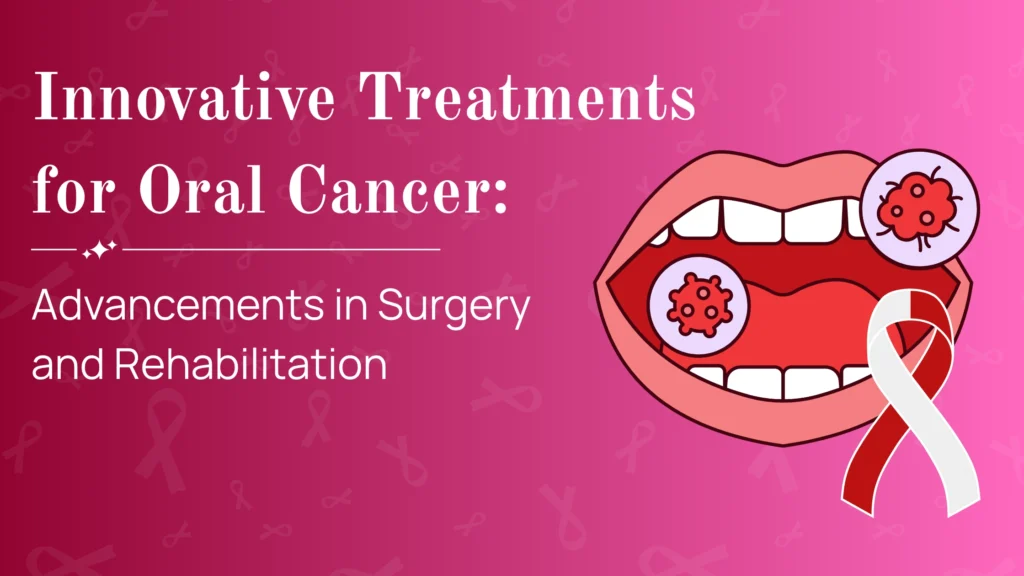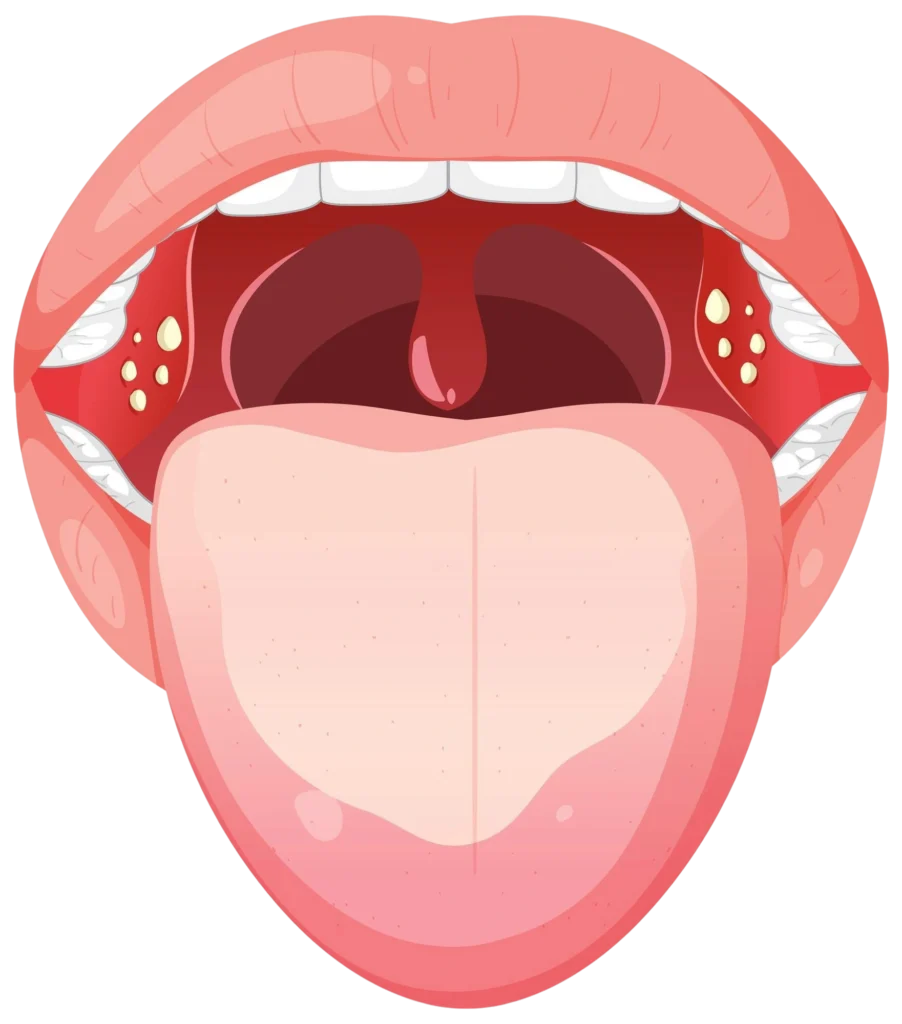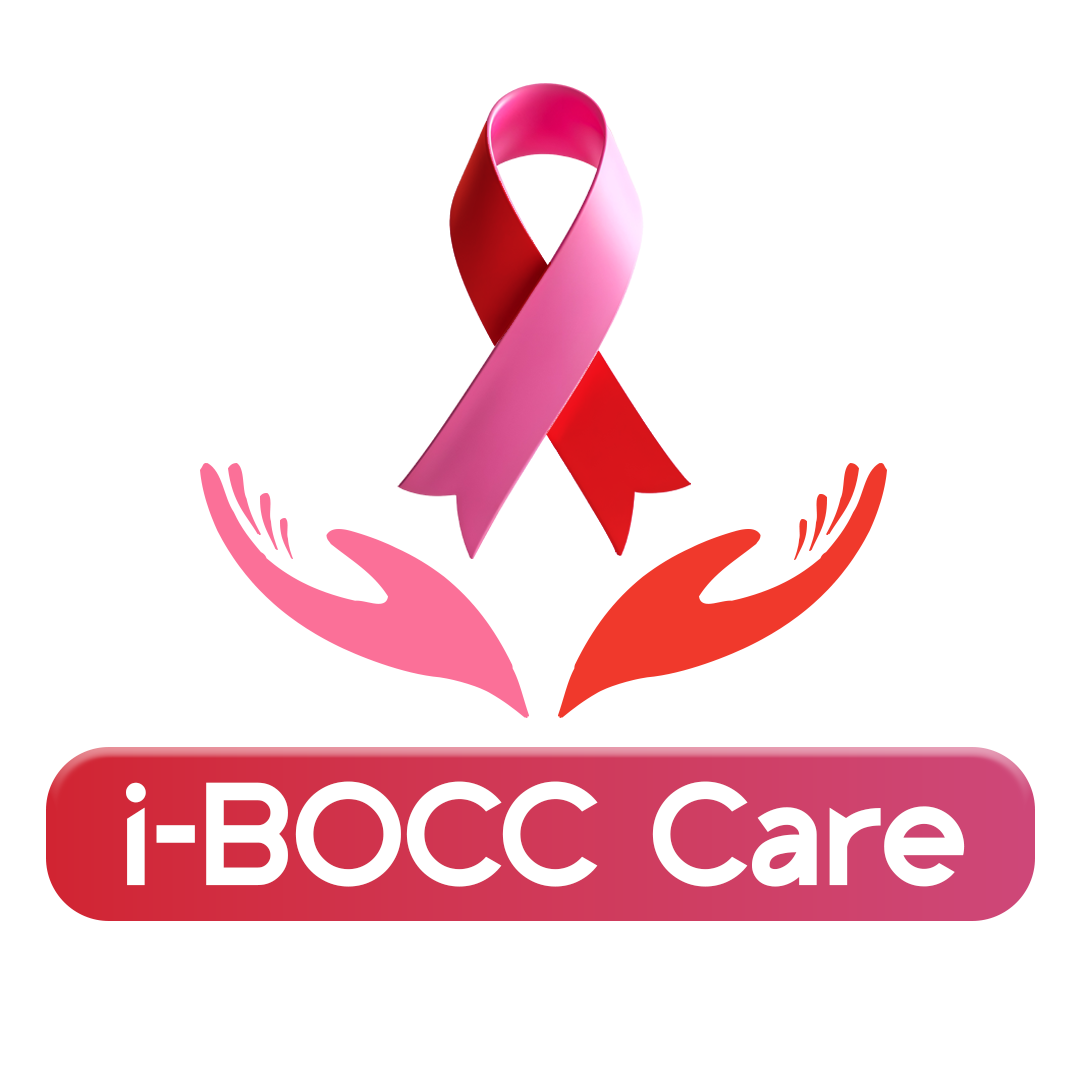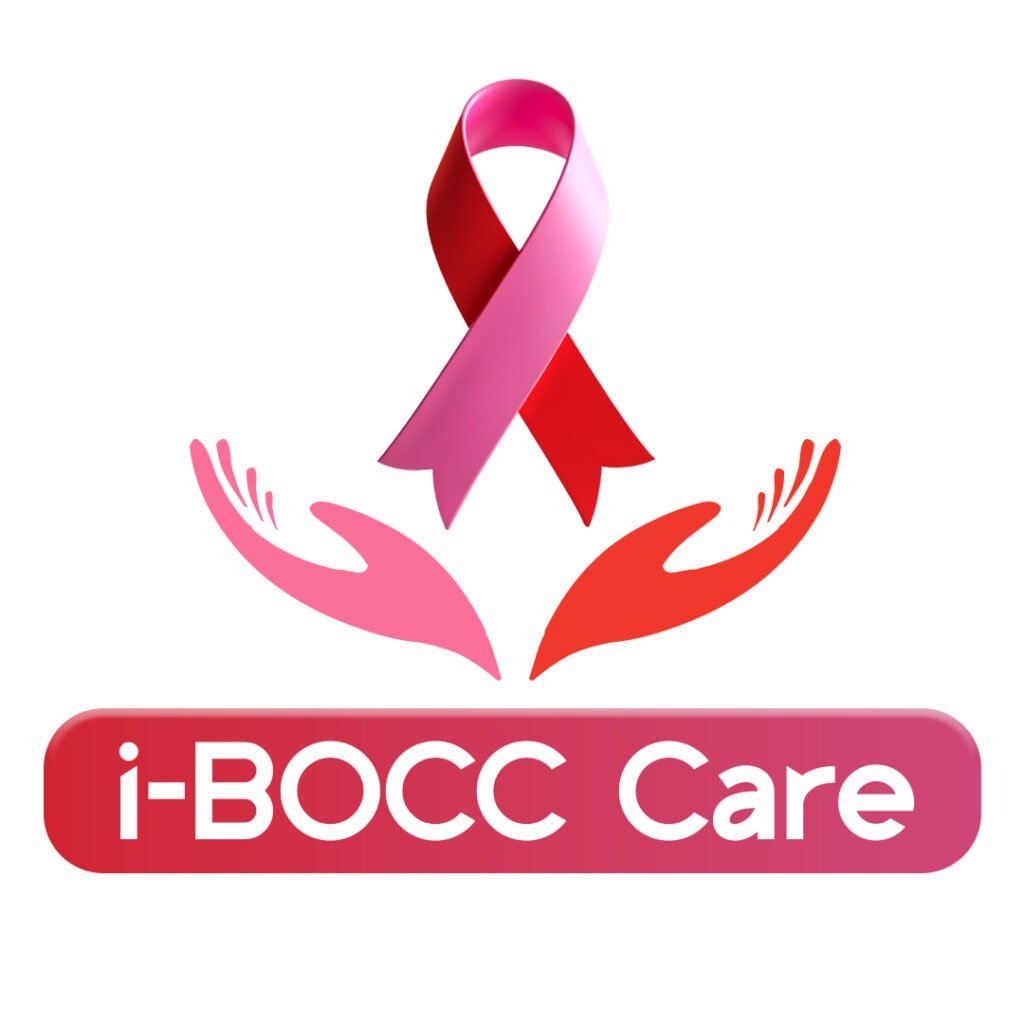Innovative Treatments for Oral Cancer: Advancements in Surgery and Rehabilitation

Exploring the Latest Breakthroughs in Oral Cancer Surgery and Rehabilitation Techniques
Oral cancer treatment has evolved significantly over the past few years, with advancements in surgery and rehabilitation making treatment more effective, less invasive, and more comfortable for patients. This blog highlights the latest innovations in oral cancer surgery, including robotic surgery and minimally invasive techniques, as well as the importance of rehabilitation in ensuring long-term recovery and quality of life for oral cancer patients.
1. Robotic Surgery for Oral Cancer
Precision and Minimally Invasive Approach with Robotic Surgery
- Robotic-assisted surgery allows for highly precise removal of tumors in delicate areas of the mouth, tongue, and throat.
- Benefits of robotic surgery include smaller incisions, reduced blood loss, and faster recovery compared to traditional surgery.
- Da Vinci Surgical System is one of the most advanced technologies used in oral cancer surgery, providing magnified 3D views and greater dexterity for surgeons.
- Minimal scarring and shorter hospital stays are common with this advanced technique, allowing patients to return to their daily activities more quickly.

2. Minimally Invasive Surgery Techniques
Less Pain, Faster Recovery: The Rise of Minimally Invasive Oral Cancer Surgery
- Minimally invasive techniques, such as laser surgery and endoscopic surgery, allow for the removal of tumors with smaller incisions.
- These methods cause less tissue damage, resulting in quicker healing and reduced discomfort for patients.
- Endoscopic surgery involves using a thin, flexible tube with a camera to guide the surgeon, offering precision while avoiding large incisions.
- Laser therapy helps in removing early-stage tumors in the mouth or throat, reducing the need for more extensive surgeries.
3. Post-Surgery Rehabilitation for Oral Cancer Patients
Ensuring Full Recovery with Speech and Swallowing Therapy
- After surgery, oral cancer patients often need rehabilitation to regain speech and swallowing abilities.
- Speech therapy helps restore the patient’s ability to speak clearly after tumor removal in the mouth or throat.
- Swallowing therapy is vital for patients who experience difficulty in swallowing due to surgery that affects the mouth or esophagus.
- Reconstructive surgery may also be required for functional restoration and cosmetic improvements, allowing patients to regain normal oral function and appearance.
Rehabilitation is an essential aspect of oral cancer recovery, helping patients return to a normal lifestyle.
4. Targeted Radiation Therapy in Oral Cancer Treatment
Precision Radiation Techniques for Effective Treatment
- Targeted radiation therapy, such as IMRT (Intensity-Modulated Radiation Therapy) and SBRT (Stereotactic Body Radiation Therapy), focuses radiation precisely on the tumor, minimizing damage to healthy tissues.
- These techniques allow for higher doses of radiation to be delivered directly to the cancerous area, improving treatment outcomes while reducing side effects.
- Post-surgery radiation is often used to kill any remaining cancer cells after the tumor has been removed.
- Radiation therapy plays a crucial role in treating advanced oral cancers or when surgery isn’t possible.
5. Advanced Chemotherapy for Oral Cancer Treatment
Targeting Cancer Cells with Advanced Chemotherapy Techniques
- Chemotherapy is used to shrink tumors before surgery or kill remaining cancer cells after surgery.
- Neoadjuvant chemotherapy (given before surgery) and adjuvant chemotherapy (given after surgery) help improve treatment effectiveness.
- Targeted chemotherapy drugs focus on specific cancer cell properties, causing less damage to healthy cells.
Chemotherapy is often combined with radiation therapy for aggressive oral cancers that have spread beyond the mouth.

6. Advances in Reconstructive Surgery for Oral Cancer
Restoring Function and Aesthetics Post-Surgery
- Reconstructive surgery is essential for oral cancer patients who undergo extensive tumor removal in the mouth, jaw, or face.
- Advanced techniques like microvascular flap reconstruction use tissue from other parts of the body to rebuild the affected area, restoring both appearance and function.
- Bone grafting is used to reconstruct the jaw or other facial structures removed during surgery, allowing for better functionality and aesthetics.
Patients can regain full oral function (eating, speaking) and cosmetic appearance through modern reconstructive techniques.
7. Immunotherapy: The New Frontier in Oral Cancer Treatment
Boosting the Body’s Immune System to Fight Oral Cancer
- Immunotherapy enhances the body’s natural immune response to fight oral cancer.
- Checkpoint inhibitors such as Pembrolizumab (Keytruda) and Nivolumab (Opdivo) block proteins that prevent immune cells from attacking cancer cells.
- Immunotherapy is especially useful for recurrent or metastatic oral cancers that don’t respond well to conventional treatments.
It is a relatively new treatment option that is showing promising results in advanced oral cancer cases.
8. The Future of Oral Cancer Treatment
Exciting Developments in Oral Cancer Therapy
- Gene therapy and personalized medicine are emerging fields in oral cancer treatment.
- Researchers are focusing on targeted treatments that specifically address the genetic mutations in cancer cells.
- Clinical trials and new drug developments are paving the way for more effective, less invasive treatments for oral cancer.
- As advancements continue, patients will benefit from more precise, less toxic therapies that offer higher chances of recovery and a better quality of life.
Conclusion: Advancements in Oral Cancer Treatment and Recovery
Advances in oral cancer treatment, such as robotic surgery, minimally invasive techniques, and innovative rehabilitation methods, are significantly improving patient outcomes. These advancements not only enhance the effectiveness of oral cancer treatments but also focus on restoring function and aesthetic appearance for patients.
With continued innovation and personalized care, patients now have access to more advanced and patient-friendly treatments that ensure better recovery and improved quality of life.
Disclaimer:
Readers should not treat any information as medical advice for their conditions. It is very important that an in-person consultation be conducted with an expert before taking any medication/treatment.


